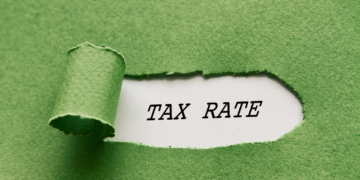Answer Summary
Full Discussion
Thank you Mr. Miza for your question. In accordance with your question, the Director General of Taxes issues a Tax Collection Letter because there is an underpayment of the amount of tax payable stated in the SP2DK. In this case, we assume that the issuance of STP is because there is income tax in the current year that is not or underpaid in accordance with Article 14 paragraph (1) of the KUP Law, as follows:
“The Director General of Taxes may issue a Tax Collection Letter if: *****)
-
- Income Tax not paid or underpaid in the current year
- from the research results there is a tax underpayment as a result of a writing error and/or miscalculation;
- Taxpayers are subject to administrative sanctions in the form of fines and/or interest;
- ……”
– Article 14 paragraph (1) of UU KUP
Provisions regarding the issuance of STP due to income tax in the current year that is not or underpaid can refer to article 36 paragraph (1) letter c of the KUP Law, as follows:
The Director General of Taxes by virtue of his/her office or upon the request of a taxpayer may:
-
- …
- …
reduce
or cancel the Tax Collection Letter as referred to in Article 14 which is incorrect; or- … “
-Article 36 paragraph (1) of UU KUP
Based on Article 36 paragraph (1) letter c of the KUP Law, the Director General of Taxes may grant the application of a taxpayer who submits a reduction or cancellation of an incorrect Tax Collection Letter. In accordance with the explanation of Article 36 of the KUP Law, if in practice an error is found caused by the inaccuracy of tax officers so that they issue an STP that is incorrect and burdens taxpayers who are innocent or do not understand tax regulations. The Director General of Taxes in his/her office or at the request of the taxpayer may approve the reduction, postponement, or cancellation of STP.
If the taxpayer feels that there has been an error caused by the tax officer’s inaccuracy resulting in the issuance of STP, the taxpayer may apply for installment of STP payment in accordance with article 9 paragraph (4) of UU KUP.
“(4) The Director General of Taxes may, at the request of a taxpayer, grant approval to minstallment or postpone tax payment including shortage of payment as referred to in paragraph (2) which the implementation of which shall be regulated by or based on the Regulation of the Minister of Finance “
– Article 9 paragraph (4) of UU KUP
The implementing regulations for installment or postponement of tax payments on STP are regulated in PMK-242/2014 to PMK-18/2021 (“PMK-242/2014”), as follows:
” Taxpayers may apply to the Director General of Taxes to install or postpone the tax underpayment as referred to in Article 3, the tax payable as referred to in Article 5, or the tax accrued as referred to in Article 6 paragraph (1), hereinafter referred to as tax debt, in the event that the taxpayer suffers from liquidity difficulties or experiencing circumstances beyond their control so that the taxpayer is unable to fulfill tax obligations on time. “
– Article 20 PMK-242/2014 s.t.d PMK-18/2021
According to article 20 of PMK-242/2014, taxpayers may apply to the Director General of Taxes to install or postpone the tax underpayment on STP, in the event that the taxpayer experiences liquidity difficulties or experiences circumstances beyond his control so that the taxpayer is unable to fulfill tax obligations on time.
The taxpayer’s application must be submitted through a tax payment installment application letter or a tax payment postponement application letter by stating the amount of tax debt whose payment is requested to be paid in installments, the installment period, and the amount of installments.
Taxpayers need to attach reasons and evidence of liquidity difficulties or circumstances beyond the power of the taxpayer in the form of interim financial statements, financial statements, or records related to circulation or gross receipts and/or gross income.
If the Director General of Taxes grants the request for installment submission, the taxpayer is subject to administrative sanctions in the form of interest rates. This provision is regulated in Article 19 paragraphs (2) and (4) of the KUP Law, as follows:
(2) In the case of taxpayers allowed to pay in installments or postpone tax payments are also subject to administrative sanctions in the form of interest in the amount of interest rate per month as determined by the Minister of Finance from the amount of tax accrued and imposed. 24 hours at most (twenty-four) months and part of a month shall be counted as 1 (one) month.
(4)
Interest rate per month
determined by the Minister of Finance as referred to in paragraph (1), paragraph (2), and paragraph (3) shall be calculated based on the benchmark interest rate divided by 12 (twelve) applicable on the date of commencement of the calculation of sanctions.
– Article 19 paragraph (2) and (4) of UU KUP
Based on article 19 paragraph (2) and (4) of the KUP Law, it is explained that the interest rate is calculated based on the benchmark interest rate determined by the Minister of Finance divided by 12 which applies on the date of commencement of the calculation of sanctions and is imposed for a maximum of 24 months.
Thus, Mr. Miza can apply for installment of STP issuance to the Director General of Taxes on the grounds that the taxpayer is experiencing liquidity difficulties or experiencing circumstances beyond his control, and meets the applicable provisions. The interest rate is calculated based on the benchmark interest rate stipulated in the PMK and then divided by 12. Hopefully, our answer can help Mr. Miza.















